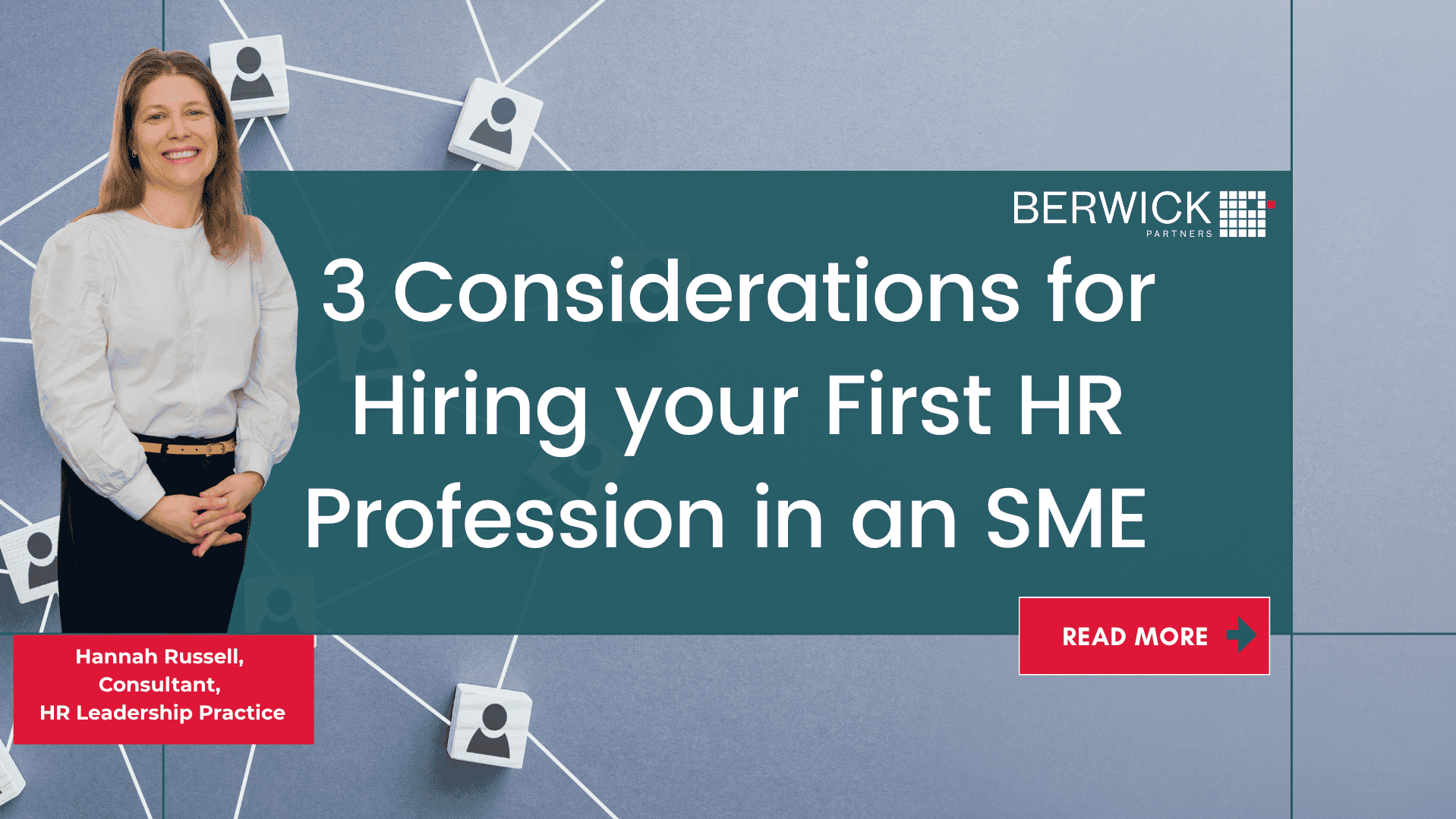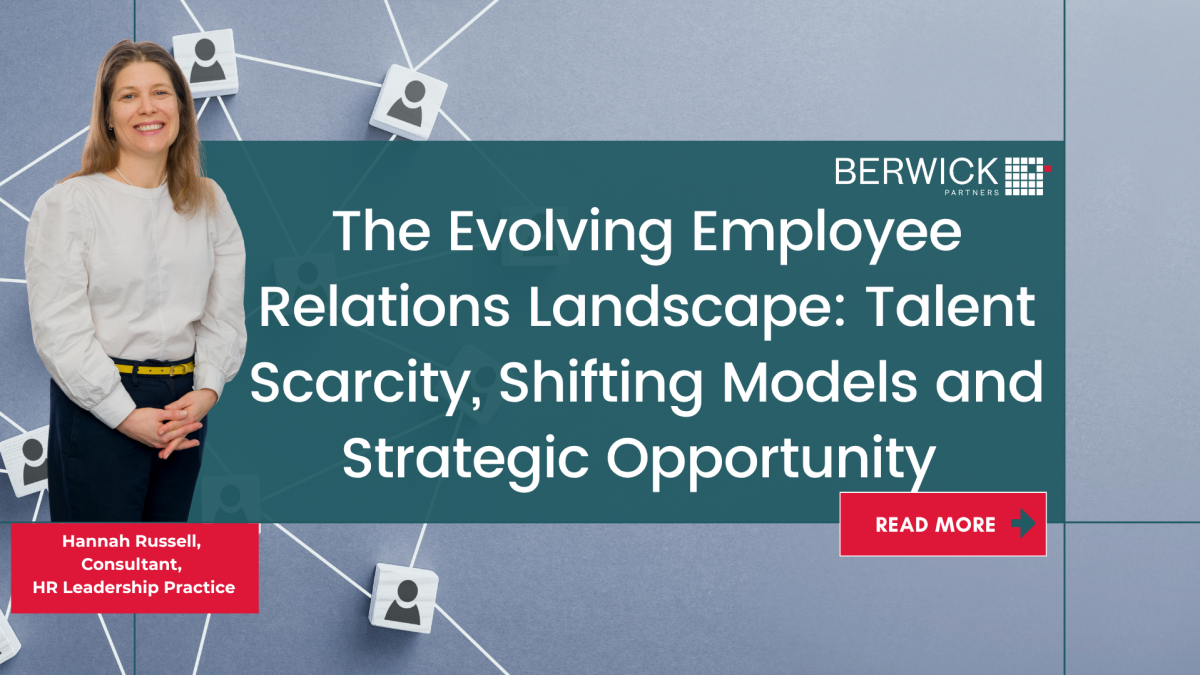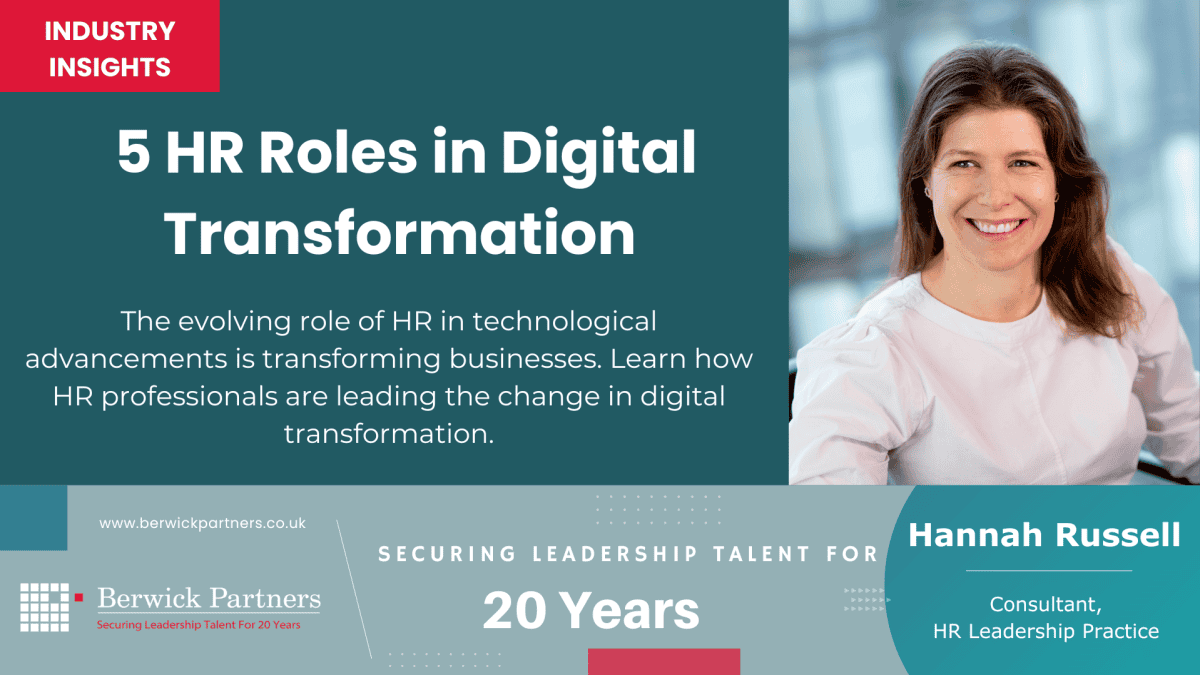3 Considerations for Hiring Your First HR Professional in an SME

For many small and medium-sized enterprises (SMEs), hiring their first Human Resources (HR) professional is a pivotal moment.
It signals not only business growth but also a recognition that managing people effectively is essential to long-term success. As your team expands, so do the complexities of recruitment, compliance, culture, and employee engagement. Bringing in an HR expert can help you navigate these challenges with confidence.
But how do you ensure you make the right hire? Here are three critical areas to consider before bringing your first HR professional on board:
-
Define What You Need from HR at This Stage of Growth
Before progressing, take a step back and assess your current and future business needs. Ask yourself:
- Are we scaling rapidly and need to streamline recruitment?
- Do we lack formal HR policies and procedures?
- Is our company culture undefined or inconsistent?
- Are we facing compliance risks or employee relations issues?
Your first HR hire should be a versatile professional – someone who can wear multiple hats and evolve with the business. In early-stage SMEs, this often means a generalist who can handle everything from hiring and onboarding to policy development and employee engagement.
Tip: Create a list of your top HR pain points and future priorities. This will help you identify the skills and experience your ideal candidate should bring.
-
Determine the Right Level of Experience and Expertise
In a small business, your first HR hire will need to be hands-on, proactive, and comfortable working independently. Look for someone with broad HR experience, ideally in another SME or startup environment, where they’ve had to juggle multiple responsibilities.
Key capabilities to look for include:
- Recruitment and talent acquisition: Can they attract and retain the right people?
- HR operations: Are they able to implement systems, policies, and processes from scratch?
- Employee relations: Are they experienced handling sensitive issues with professionalism?
- Strategic insight: Are they able to advise leadership and align HR initiatives with business goals?
Tip: Consider whether you need someone who can grow into a leadership role or if you need a more senior hire from the outset. This will influence your budget and the scope of the role.
-
Integrate HR into Your Leadership and Culture
HR should not be an afterthought or siloed function. This means involving them in strategic planning, giving them visibility into business goals, and ensuring they have the authority to influence decisions.
Ask yourself:
- Who will they report to?
- Will they be part of leadership meetings?
- How will we ensure their voice is heard in shaping company culture?
By embedding HR into your leadership structure, you signal to the rest of the organisation that people are a priority—and that people are important.
Tip: Set clear expectations for how HR will contribute to business success and communicate this across the organisation.
Conclusion
Hiring your first HR professional is an important investment in your company’s future. By taking the time to understand your needs, define the right level of expertise, and integrate HR into your leadership, you’ll be well-positioned to find a candidate who can help your business thrive.
Remember, the right HR hire won’t just manage people – they’ll help shape the culture, drive performance, and support your growth journey.
If you would like to talk about how to find the right HR professional for your business, get in touch with me at Hannah.Russell@BerwickPartners.co.uk




